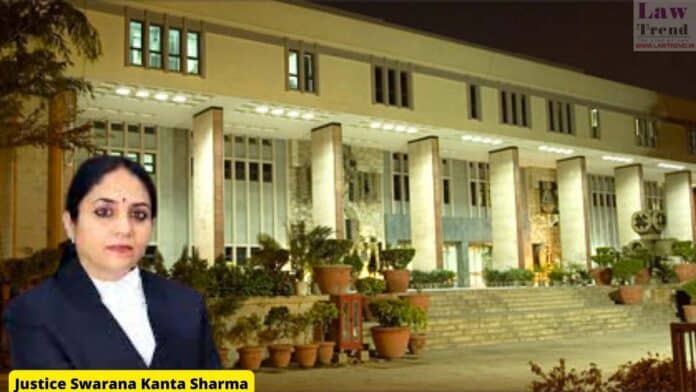The Delhi High Court has acquitted a man of the charge of destruction of evidence for a 2004 murder, saying the case was not based on the established principles of law of evidence and he faced trial for many years despite there being no incriminating evidence against him.
The high court noted the prosecution had initially found nothing incriminating against the man and not even named him in the FIR or the initial charge sheet.
Justice Swarana Kanta Sharma allowed Vijay Bahadur’s appeal challenging the trial court’s 2011 judgment by which he was convicted and sentenced to one-year imprisonment for the offences of criminal conspiracy and destruction of evidence.

It said when the appellant and other co-accused stood acquitted of the substantive and principal charge of murder, and there being a categorical finding by the trial court that the prosecution had failed to establish commission of the offence of murder by Bahadur and others, he could not have been convicted of destruction of evidence.
The high court said Bahadur could not have been independently convicted of destruction of evidence as the principal offence under Section 302 (murder) IPC itself has not been established against any of the accused persons, besides other lacuna in investigation and the manner of filing of supplementary charge sheet against the present appellant on oral directions of the (trial) court.
“There are few unusual and interesting facts disclosed from the impugned judgment (of trial court) itself and the most glaring is that the supplementary charge sheet in the present case against present appellant was filed at the oral direction of the concerned trial court.
“This is unheard of in criminal jurisprudence or the procedure followed in the criminal courts. This fact has been mentioned by the trial court in the impugned judgment itself,” the high court said.
A case was lodged in November 2004 on the complaint of a man who alleged his driver had gone missing with his car which was used for tourism purposes.
During the investigation, the driver’s body was found and identified by the complainant, and four men, who had booked the taxi for an outstation visit, were arrested in 2004. Bahadur was arrested by the police in 2006.
The high court, after considering the evidence brought on record, including various pieces of circumstantial evidence, concluded that the evidence put forth by the prosecution was inherently insufficient to establish a solid foundation for conviction.
Also Read
“This court, therefore, holds that the present case is not based on the established principles of law of evidence and Indian Penal Code. The judgment also suffers from the fact that despite there being no incriminating evidence against the present appellant, he has been convicted on the basis of a presumption.
“This court notes with a little dismay that the present appellant has faced the trial for many years despite there being no incriminating evidence against him. At this stage, the only recourse available to this court is to acquit the appellant of all the charges leveled against him,” it said.
It said the prosecution failed to prove its case beyond reasonable doubts and the independent conviction of the accused for the offence of destruction of evidence was “improper, unjustified and unlawful” in the facts and circumstances of this case.







